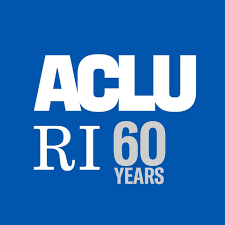
Joining with groups that span the ideological spectrum, the American Civil Liberties Union of Rhode Island has filed a “friend of the court” brief in the U.S. Supreme Court in a case raising significant issues concerning the scope of Fourth Amendment protections and police warrantless searches of the home. The brief argues that an unfavorable ruling in the case could “give police free rein to enter the home without probable cause or a warrant, whenever they think it is ‘reasonable’ to do so.”
The case, dating back to 2015, involves Cranston resident Edward Caniglia, whose two lawfully owned firearms were seized from his home without a warrant or his consent in a non-emergency situation as a result of a “wellness check” conducted by Cranston police officers. His wife had called the police department to express concern about his mental health in response to an argument they had had the night before.
When officers arrived at his house the day after that argument, they told Caniglia that his firearms would be confiscated unless he agreed to a mental health evaluation. Caniglia agreed, and was transported by ambulance to Kent Hospital where he was evaluated and promptly released. However, despite their assurances to the contrary, police officers entered Caniglia’s home in the meantime and confiscated his two firearms and ammunition for “safekeeping.” The officers told Caniglia’s wife that once he was cleared by the hospital, he could pick up them up at the station. But when Caniglia tried to do so, he was told it was department policy not to return weapons confiscated for safekeeping without a court order.
The ACLU filed a federal lawsuit against the Cranston Police Department, challenging both the seizure of his weapons without a warrant and the department policy against returning them without a court order. The federal district court agreed that the department’s policy of refusing to return the firearms was unconstitutional, but upheld the warrantless search and seizure of the weapons on the grounds that police were engaged in a “community caretaking” function that did not require a warrant. The federal court of appeals upheld that ruling.
Relying on private counsel, Caniglia appealed to the Supreme Court, which agreed to hear his case to decide whether the “community caretaking” exception to the Fourth Amendment’s warrant requirement can be applied to warrantless searches of a person’s home. The ACLU’s brief in support of Caniglia notes that the “community caretaking” exception relied on to justify the warrantless search and seizure in this case arose in Supreme Court jurisprudence involving the searches of cars impounded by the police. The ACLU brief argues that that doctrine has no force in the context of home searches, the protection of which is “the cornerstone of the Fourth Amendment.” Instead, the brief points out, the Supreme Court “has held that warrantless home entry is constitutional in just two narrow settings: consent of an occupant or exigent circumstances.” The brief goes on to argue:
Extending the “community caretaking” exception to warrantless searches of the home would allow police to bypass the Fourth Amendment’s restrictions in a startling array of circumstances. These are not theoretical concerns. In both state and federal courts, everything from loud music to leaky pipes have been used to justify warrantless invasion of the home. Allowing ill-defined notions of “community caretaking” to override the Fourth Amendment is both unwise, unmanageable, and unnecessary, and it opens the door to abusive police conduct, including against those who most need society’s protections.
Amici urge the Court to keep the “community caretaking” exception confined to its historic, vehicle-related origins and reject a broader standard that would give police free rein to enter the home without probable cause or a warrant, whenever they think it is “reasonable” to do so.
The brief concludes by stating: “The [lower] courts have taken a doctrine developed for the reduced expectation of privacy associated with impounded vehicles, and applied it to the home, the apex of privacy, without justification.”
In addition to the ACLU of Rhode Island and its National office, the brief was filed on behalf of three conservative organizations: the Cato Institute, the American Conservative Union Foundation, and the R Street Institute.








Comments